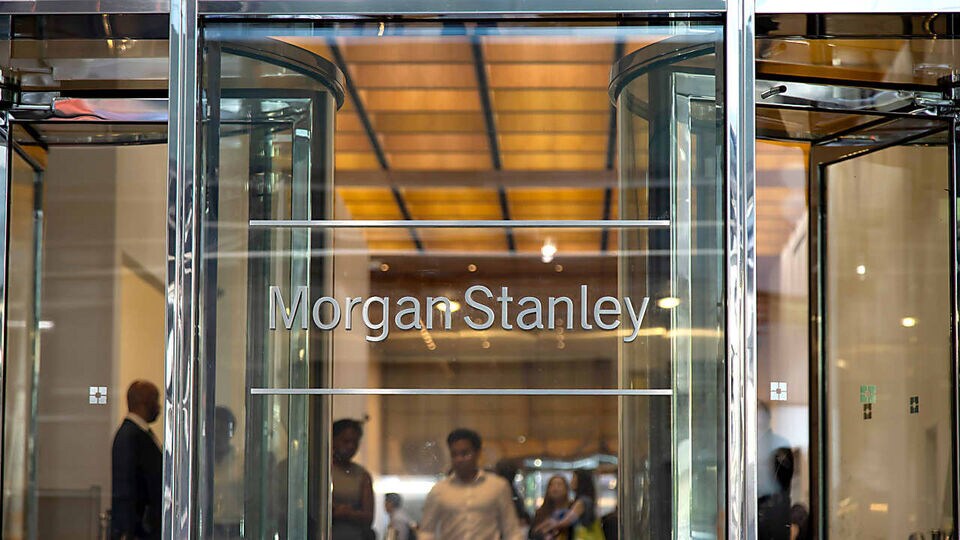TD Awards $10 Million to 10 Canadian and American Organizations Focused on Addressing the Challenges of Climate Change

|
Listen to this story:
|
This year’s grant recipients are focused on solutions designed to assist people and communities who may be disproportionately affected by climate change and the transition to a low-carbon economy
TD Bank Group (TD) is pleased to announce 10 grant recipients of the 2022 TD Ready Challenge, an annual initiative that seeks to support non-profit and charitable organizations that are focused on developing innovative, impactful, and measurable solutions for a changing world.
This year’s problem statement was focused on supporting solutions designed to help people and communities who may be disproportionately affected by climate change, to prepare for, adapt to and help mitigate the potential impacts of climate change and/or to work towards a transition to a low-carbon economy.
The 10 recipients are focused on making an impact in communities across the TD footprint through initiatives that include large-scale green infrastructure projects, the development of renewable energy solutions, and workforce development/retraining opportunities, among others.
“Promoting a more inclusive and sustainable future is core to our purpose as an organization and we are focused on helping our customers, colleagues and communities thrive in a rapidly changing world, ” said Janice Farrell Jones, Senior Vice President, Sustainability and Corporate Citizenship, TD Bank Group. “Through this year’s TD Ready Challenge, we are helping to enable organizations with promising new ideas to address the transition to a low-carbon economy and support those communities that are most affected.”
As both the private and public sectors are taking steps to help mitigate the effects of climate change and the transition towards a low-carbon economy, certain groups may be disproportionately impacted including:
- Racialized and Indigenous communities
- Seniors, youth, and children
- Newcomers
- Low-income communities
- People with pre-existing health conditions and/or disabilities
- Communities that have traditionally been economically dependent on carbon-intensive industries
“Some communities may experience the effects of climate change and the transition to the low carbon economy in inequitable ways,” said Shelley Sylva, Head US Corporate Citizenship, TD Bank. “We are committed to supporting organizations that are working towards solutions for a more inclusive and sustainable tomorrow, and that have scalable innovations for our communities.”
The TD Ready Challenge is part of the Bank’s longstanding commitment to helping create a more inclusive and sustainable future. Each year, the TD Ready Challenge invites eligible organizations to submit applications that offer solutions to a problem statement that is connected to one or more of the four drivers of the TD Ready Commitment: Financial Security, Vibrant Planet, Connected Communities and Better Health. In previous years, the TD Ready Challenge has focused on issues including driving more equitable health outcomes, income stability, and addressing pandemic-related learning loss.
For 2022, there were a maximum of 10 grants available under the TD Ready Challenge for Canada and the US together. Eligible Canadian-based organizations were able to apply for CDN$1 million and eligible US-based organizations were able to apply for USD$1 million.
To learn more about the 2022 TD Ready Challenge grant recipients and the TD Ready Challenge Grant program, visit www.td.com/readychallenge.
Learn more about the 2022 TD Ready Challenge recipients below, as they describe their winning submission in their own words.
$1 million CAD / $1 million USD recipients:
Green Communities Association: Living Cities Canada – Canada
“This ambitious project will support 10 cities to advance large-scale green infrastructure that will better prepare vulnerable communities for increased flooding, extreme heat, and other impacts of climate change. Each local partner will receive the direct financial support, structured coaching, and resources needed to implement depaves, reforestation, and other targeted nature-based solutions.”
Community Forests International: Family Forests for a Green Future- Atlantic, Canada
“Community Forests is supporting families across Nova Scotia and New Brunswick to enter the low-carbon economy through nature-based carbon storage. Over 12 million acres of endangered Wabanaki-Acadian Forest is owned by 80,000 rural households in the Maritimes. This project mobilizes family forest owners to share in the economic opportunity of protecting forests to achieve global climate benefits.”
See related article: TD Invests in Canada’s Largest Private Conservation Project, Announces ESG Solutions’ Carbon Advisory Practice
Skills for Change of Metro Toronto: Youth Climate Action Initiative- GTA, Canada
“This project aims to instill in the youth (ages 16-29) residing in the Greater Toronto Area a culture of environmental preservation, health and well-being to lead urban greening initiatives. As the disproportionate effects of climate change on poor and racialized neighborhoods is evident, this project will help mitigate the effects of climate change through holistic youth-led interventions.”
PRIMED (Pacific Regional Institute for Marine Energy Discovery) Accelerating Indigenous resurgence through community based marine energy systems: integrating wave energy into the Mowachaht-Muchalaht Nation’s re-occupation of Yuquot – Pacific, Canada
“PRIMED is working towards the development of a first of its kind renewable energy microgrid incorporating a wave energy device at Yuquot on Nootka Island, a National Historic site and traditional home of the Mowachaht-Muchalaht First Nation. This project will be at the cutting edge of renewable energy system development and support the Nation to achieve their dream of re-habiting Yuquot.”
Small Change Fund: Environmental Justice Research Alliance- Canada
“Our initiative, The Environmental Justice Research Alliance, connects communities disproportionately impacted by climate change with skilled researchers. Together, we conduct research that actively supports climate and environmental justice. The Alliance provides training and opportunities for students and researchers to directly contribute to equitable climate solutions.”
University of Ottawa: National Indigenous Climate Compass (NICC) – Canada
“uOttawa’s Centre for Indigenous Community Infrastructure, Indigenous Tech.ai and Indigenous communities will co-develop an online tool delivering instant climate change information for communities. The tool will help them adapt to and mitigate climate change risks: rising temperatures, thawing permafrost, varying wind/water levels, shrinking ice packs, changing migratory patterns and wildfires.”
Local Initiatives Support Corporation (LISC): Bridges to Green Jobs – US, Southern New England
“Bridges to Green Jobs provides a pathway to quality jobs in green energy and climate resiliency for communities that have been disproportionately affected by climate change and historically excluded from and underrepresented in the green jobs sector and adjacent industries (e.g. construction and related trades). We will expand in Boston and scale to Newark and Detroit over a 2-year period.”
Main Farmland Trust: Climate Resilience for Maine Farms: supporting farm viability from the soil up – Northern New England, U.S.
“Maine Farmland Trust is building upon our farmland conservation efforts by fostering greater resilience to climate change on farms in our 500-Farm Network. MFT will expand its Soil Health Network initiative by addressing the need for funding and technical assistance to support farms transitioning to climate-smart practices on their agricultural land and field edges, and in farm landscape planning.”
New York City Energy Efficiency Corporation: Addressing the Financial and Workforce Barriers for an Equitable Clean Energy Transition in NYC Affordable Housing and Low to Moderate Income (LMI) Communities – Metro New York, U.S.
“An equitable clean energy transition requires large-scale green capital deployment, a qualified workforce to implement projects, and community participants that are engaged in an authentic way. This program addresses barriers to capital deployment through green finance while building a more inclusive technical workforce and increasing community engagement through training and education.”
Rowan University Foundation: GREEN JOBS ACADEMY OF ROWAN UNIVERSITY: Educating the Workforce of Tomorrow and Building a Robust, Sustainable Economy for Southern New Jersey – PA, NJ, U.S
“Rowan University, Rowan College of South Jersey, and the SJ Workforce Development Boards, seek to establish a Green Jobs Academy to build pathways to required industry credentials in offshore wind and solar power to meet the state’s growing need to respond to the climate crisis, by developing a home-grown, green energy workforce, supporting those affected by carbon-based industry closures.”








